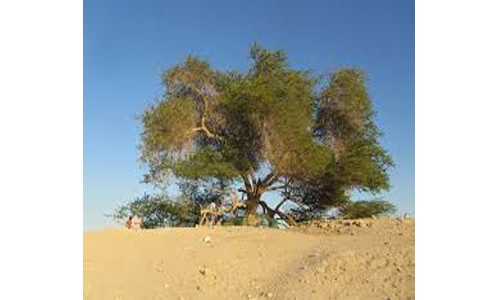Multiple environmental challenges face Bahrain
Sriraj Kota
Ever since oil was discovered in Bahrain in 1932, the country has witnessed rapid economic growth and development mainly due to the processing of crude oil and exporting refined products across the world.
The oil powered economic activity also attracted the migrant population to the extent that eventually 48 per cent of the population comprised of migrants.
The population growth coupled with migration over the years has put tremendous pressure on the natural resources of Bahrain leaving the Kingdom to face multiple environmental challenges.
The oil led prosperity had a flip side too as the fertile land of the nation and the groundwater table quality bore the brunt as their condition deteriorated rapidly.
Bahrain’s groundwater currently suffers from degradation in quantity and quality from over-extraction, seawater invasion apart from oil spills. This increased the dependence on seawater desalinisation to supplement the domestic water supply, as a result nearly 60 per cent of the nation’s water supply is desalinated.
Desalination plants pose a threat to the environment in a major manner. The seawater used contains high quantities of boron and bromide. The process used to desalinate removes calcium and other essential minerals. The salt leftover from desalination goes into the ocean increasing the salinity of the water.
The increased salinity causes harm to the environment, especially to marine life.
For any nation, the state of urban facilities is symbolic of its progress.
The presence of excellent sewage and sanitation infrastructure is the bedrock of any modern city.
Bahrain’s sanitation infrastructure is one of the most thorough systems as the nation adopted a well-planned sewage system as early as 1970 and ensured that 98 per cent of the population connected to a central sewage network.
But this sewage system is now outdated and inadequate in the face of a growing population and though Bahrain is combating this inadequacy by adding new treatment plants and expanding existing ones, the shortfall is becoming more apparent by the day.
Bahrain is countering the same by setting up multiple deep gravity sewer projects to cover large areas of the country.
This will address the growing need for effective sanitation facilities so that the ambient environment is not compromised.
Along with efficient sewage systems, the challenges arising from scarcity of freshwater resources is also creating additional problems.
Bahrain contains the lowest endowments of freshwater resources in the world, which affects its freshwater availability.
Bahrain’s average annual rainfall hovers around 80 mm and its evapotranspiration hovers around 1850 mm.
There are no rivers, continuously flowing streams or lakes.
The country obtains groundwater from the lateral underflow of the Dammam aquifer.
Freshwater share among Bahrain’s populace is in decline.
The share went from 525 m3 per year in 1970 to m3 per year in 2001 placing the country’s freshwater share less than the 500 m3 per year capita water poverty line.
These levels are likely to further decline and even halve due to the country’s continual population increase.
Adding to the environmental woes of the nation, Bahrain generates above 1.2 million tonnes of solid waste per year making the country one of the world’s leading per capita solid waste generators.
Estimates determine that daily garbage production exceeds 4,500 tons. Waste accumulation increases at a rapid pace which eventually impacts the quality of air, soil and groundwater in Bahrain.
Bahrain’s government launched recycling initiatives, a waste-to-energy (WTE) project and a public awareness campaign in response to combat waste accumulation, this is expected to stem the rising waste problem but unless the WTE initiative keeps pace with the waste generation, the nation may experience irreversible environmental damage.
As each nation fights its own battle against environmental challenges, Bahrain too is besieged by a multitude of problems and is fighting tooth and nail.
The efforts of the government have been successful in holding the problems from assuming a severe form, but as conditions keep getting worse the government must ensure dynamic measures that are apace with the problems.
Be it afforestation measures or increasing the number of urban water bodies, each proactive step will go a long way in ensuring that the rising temperatures are kept in check and the groundwater level is sufficiently replenished.
The role of the common man is also an essential component in successfully meeting the environmental challenges and addressing them. To ensure the same a superior level of public awareness needs to be created which can provide the much-needed impetus to the government initiatives to conserve the environment.
Environmental challenges are normal but how Bahrain will respond to them will decide the state and safety of its environment.
Related Posts

